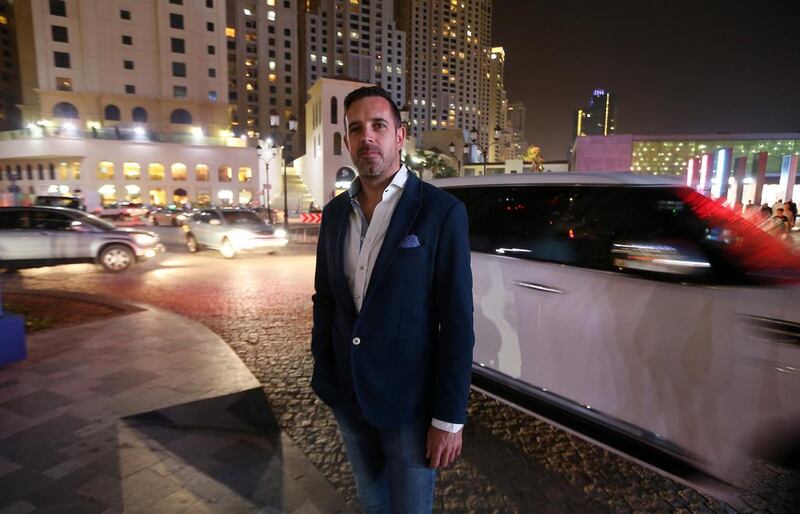ABU DHABI // To reduce the cost of vehicle insurance, car owners and fleet managers could consider fitting their vehicles with monitors for speeding and erratic driving.
That is the advice of a British security consultant who had worked for the Kent police.
Journey data loggers record speed, the use of lights and indicators and other driving patterns, allowing motorists who drive safely to reduce their car insurance premiums.
A sensor or accelerator can be programmed to flag excessive force in braking, acceleration or on impact.
“I drive a lot in the UAE and get tired of the aggressive driving style everyone uses here,” said Robert Rowles, 38, who now works in Dubai. “And any braking space I leave between my car and the one in front is often filled with a car swerving into it at any given chance.
“I would gladly move forward with the introduction of these systems, having already installed and witnessed the effective use of the system.”
The system was installed in British police vehicles in 2007. The data recorded was sent to headquarters after every journey.
“The use of data loggers was well-publicised as a tool to show that nobody could hide if they were at fault, and either party not responding or driving correctly,” Mr Rowles said.
When a device is operational, it informs the driver about his driving style and deters risky driving. “The system could be used here for both road safety and fleet management,” Mr Rowles said. “And if it was insurance approved, then this could add reductions to insurance for users who drive safely.”
Glenn Havinoviski, a transport expert who specialises in incident management, agrees.
The devices could serve several purposes in fleet management, safety and traffic data collection. Car makers can use them to inform drivers when repairs are needed.
“Data loggers and on-vehicle monitors are being used by fleet managers for buses and trucks, monitoring not only maintenance issues but also driver habits,” he said.
"Abu Dhabi taxis use GPS technologies to monitor how fast their drivers are going and if they exceed speed limits on various types of roads."
For road users, the system is a boon, Mr Rowles said.
“If you’re involved in an incident and you’re not speeding, had the correct lights on, not accelerating or swerving hard, this data could be used to prove your driving was not to blame,” he said.
Speed is monitored and for those who accelerate and brake sensibly and stay within speed limits for the first year, a discount will be available.
Julien Audrerie, senior vice-president of customer integration at Oman Insurance Company, said the system would work out best for fleet management.
“It’s extremely positive, no doubt about that,” he said. “For private car owners, when they know they are being monitored they will try to drive better. It’s psychological.”
Mr Rowles dismissed the argument that “it’s Big Brother watching”.
“If you have nothing to hide, you have everything to gain with regards to reductions in both incidents and cost of policy,” he said.
The data could be stored on a central server for all registered insurance companies to access.
“There would be no escape for speeding drivers, as the data log would be able to highlight the reckless drivers,” he said.
rruiz@thenational.ae






